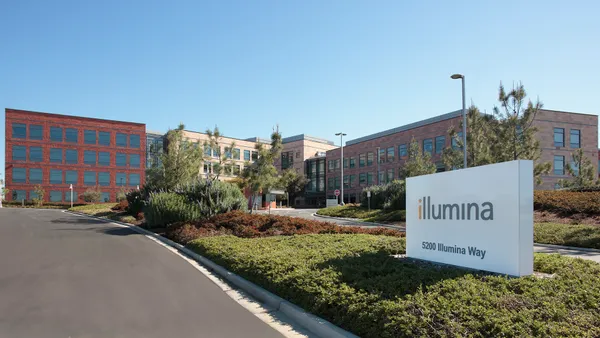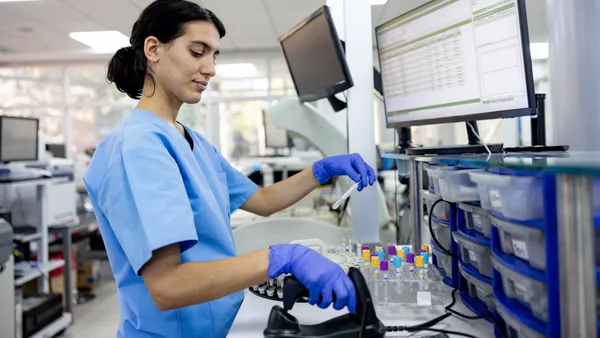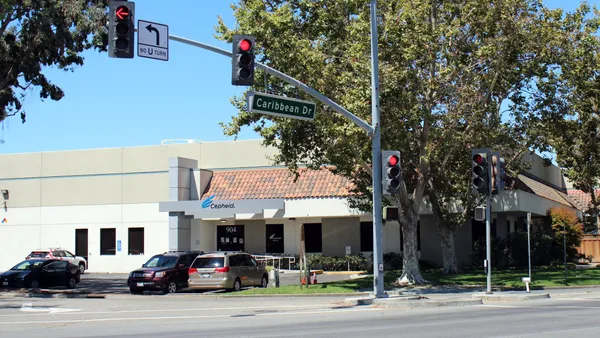Dive Brief:
- Illumina completed its spinoff of Grail, a maker of cancer blood tests, ending the company’s attempted acquisition nearly four years after announcing the deal.
- Grail began trading on Nasdaq as an independent company on Tuesday. Illumina distributed Grail shares to its stockholders and retained a minority share of 14.5% in the business. Illumina announced the completed divestiture on Monday.
- The liquid biopsy developer restarts life as a standalone business with cash from Illumina, which has taken out a loan of $750 million and provided money from its balance sheet to fund Grail.
Dive Insight:
Illumina founded Grail as a separate company focused on detecting multiple cancers in blood samples in 2016. As Grail prepared to go public in 2020, Illumina agreed to buy the business for $8 billion. The deal triggered reviews by the European Commission and U.S. Federal Trade Commission, but Illumina completed the takeover before the regulators reached their conclusions.
After that, Illumina defended the legitimacy of the acquisition, particularly in the European Union, while considering the best way to divest the asset if it failed to overcome regulatory resistance. The company pursued opportunities to spinoff or sell Grail in parallel before deciding to list the business on Nasdaq.
Amid the regulatory scrutiny, Illumina faced a proxy challenge from activist investor Carl Icahn. Illumina shareholders voted out Chairman John Thompson and shortly after, CEO Francis deSouza resigned.
Illumina’s board approved the spinoff in early June, keeping the company on track to divest the asset by the end of the month as planned. Management told investors the process would incur up to $50 million in costs, mainly related to legal and advisory fees, and took out a loan of up to $750 million to meet its funding obligation to Grail. The European Commision told Illumina to capitalize Grail with around $1 billion.
Grail CFO Aaron Freidin said at an investor event in May that the money will support the company through the end of 2026. The funding covers a period in which Grail expects to report data from a study it is running with the U.K. health service and file for premarket approval in the U.S. The U.K. study will inform whether the country uses Grail’s Galleri test in a full-scale national screening program.
Freidin said Grail expects to “have line of sight to profitability” as it progresses through major milestones and has “levers to pull” to manage its cash burn.
Leerink Partners analysts have questioned if Grail will find investors willing to fund its operations beyond 2026.









